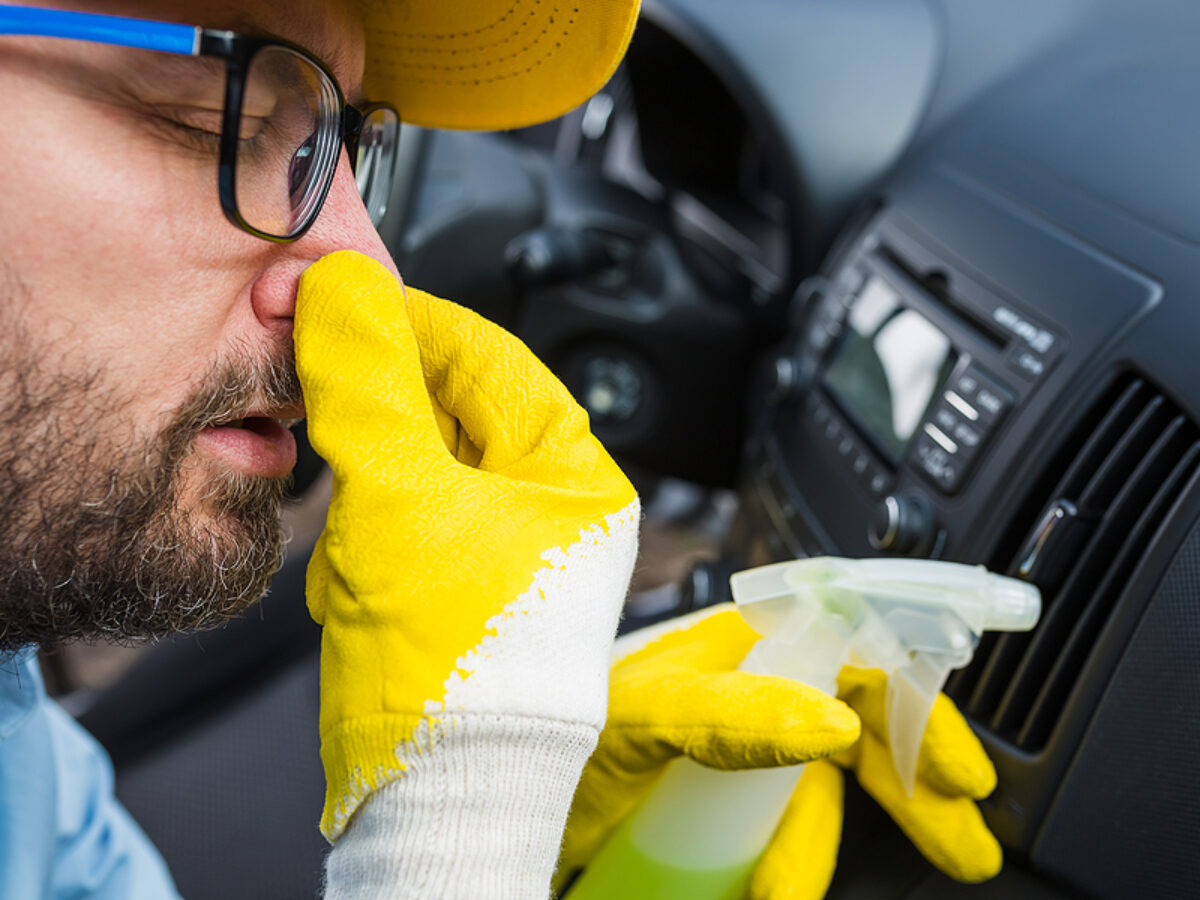

Articles
Car Smells Like Gas When AC Is On
Modified: May 6, 2024
Discover why your car smells like gas when the AC is on. Read our informative articles for solutions and prevention tips.
(Many of the links in this article redirect to a specific reviewed product. Your purchase of these products through affiliate links helps to generate commission for Storables.com, at no extra cost. Learn more)
Introduction
One of the most concerning situations for car owners is when they start to notice strange smells in their vehicle, especially when the air conditioning (AC) is turned on. If you have been experiencing a strong gas odor inside your car whenever the AC is running, it’s important not to ignore this issue. A gas smell in your vehicle could indicate a problem with your fuel system, evaporative emissions system, or even faulty engine components.
In this article, we will delve into the possible causes of a car smelling like gas when the AC is on, as well as provide some troubleshooting tips and solutions. Understanding the underlying issues can help you ensure the safety of your vehicle and take the necessary steps to address the problem.
Key Takeaways:
- Don’t ignore a gas smell in your car when the AC is on. It could indicate fuel system leaks, evaporative emissions issues, or faulty engine components. Prompt inspection and professional assistance are crucial for safety.
- Regularly check for fuel leaks, inspect the evaporative emissions system, test engine components, and maintain clean air filters to eliminate gas smells in your car. Prioritize safety and seek professional help when needed.
Read more: Car Smells Like Burning Rubber When AC Is On
Understanding the Issue
When you notice a strong gas smell in your car when the AC is on, it’s important to understand that this is not a normal occurrence. Your vehicle should not emit any unpleasant odors, especially those associated with gasoline. The presence of a gas smell can indicate a potential problem with your car’s fuel system, evaporative emissions system, or engine components.
It’s essential to address this issue promptly for several reasons. Firstly, a gas smell can be a sign of a fuel leak, which poses a significant safety risk. Fuel leaks can lead to fire hazards, putting both you and your passengers in danger. Secondly, ignoring the issue can lead to further damage to your vehicle’s components, resulting in costly repairs.
By understanding the possible causes of a gas smell when the AC is on, you can take appropriate actions to resolve the issue quickly and effectively.
Possible Causes
There are several potential causes for a car smelling like gas when the AC is on. These include fuel system leaks, issues with the evaporative emissions system, faulty engine components, or clogged or dirty air filters. Let’s explore each of these causes in more detail:
- Fuel System Leaks: A gas smell could indicate a leak in the fuel system. This could be from a damaged or corroded fuel line, a faulty fuel injector, or a leaking fuel tank. When the AC is on, the increased air circulation can carry the smell into the cabin.
- Evaporative Emissions System Issues: The evaporative emissions system is responsible for storing and controlling the release of fuel vapors from the fuel tank. If there is a problem with this system, such as a faulty charcoal canister or a broken fuel vapor line, it can lead to a gas smell in the car.
- Faulty Engine Components: Issues with certain engine components, such as the fuel pressure regulator or the fuel injectors, can cause a gas smell. If these components are malfunctioning or leaking, it can result in fuel odors entering the cabin when the AC is running.
- Clogged or Dirty Air Filters: An air filter that is clogged or dirty can disrupt the proper airflow in the vehicle, causing an imbalance in the fuel-air mixture. This can result in a gas odor when the AC is on, as the air conditioning system uses the same air intake as the engine.
It’s essential to properly diagnose the cause of the gas smell before attempting any repairs. If you’re unsure about the exact cause, it is recommended to consult a qualified automotive technician who can perform a thorough inspection and provide an accurate diagnosis.
Fuel System Leaks
One of the potential causes of a car smelling like gas when the AC is on is a fuel system leak. A fuel system leak occurs when there is a break or damage in the fuel line, fuel injector, or fuel tank, leading to a release of gasoline vapors.
When the AC is running, the increased airflow can bring the gas smell from the leak into the cabin, making it more noticeable to the occupants of the vehicle. This is a serious issue that should be addressed immediately, as fuel leaks can pose a significant safety risk.
To identify if a fuel system leak is causing the gas smell, it is crucial to conduct a thorough inspection. Here are some steps you can take to troubleshoot and resolve the issue:
- Visual Inspection: Start by visually inspecting the fuel lines, fuel injectors, and fuel tank for any signs of leakage. Look for puddles of gasoline or wet spots near these components. If you notice any signs of leakage, it’s important to take the necessary precautions and address the issue.
- Check Fuel Pressure: If you suspect a fuel system leak but are unable to identify a visible source, you can perform a fuel pressure test. This involves using a fuel pressure gauge to measure the pressure in the fuel system. A significant drop in pressure could indicate a leak in the system.
- Seek Professional Assistance: If you are unsure about conducting a fuel system inspection yourself or if you have identified the presence of a fuel leak, it is recommended to seek the help of a professional automotive technician. They have the expertise and equipment to accurately diagnose and repair fuel system leaks.
Remember, addressing a fuel system leak promptly is essential for your safety and the well-being of your vehicle. Ignoring the issue could lead to more severe problems and potentially dangerous situations. It’s always best to consult with a qualified professional to ensure proper diagnosis and repair.
Evaporative Emissions System Issues
Another possible cause of a car smelling like gas when the AC is on is a problem with the evaporative emissions system. The evaporative emissions system is designed to capture and store fuel vapors from the fuel tank, preventing them from escaping into the atmosphere.
If there is a malfunction in this system, such as a faulty charcoal canister, broken fuel vapor lines, or a malfunctioning purge valve, it can lead to the release of gasoline vapors. When the AC is running and the air inside the vehicle is circulating, these vapors may be drawn into the cabin, causing a gas smell.
Here are some troubleshooting steps to identify and address evaporative emissions system issues:
- Visual Inspection: Begin by visually inspecting the charcoal canister and fuel vapor lines for any signs of damage or leaks. Look for cracks, disconnected or broken lines, or any other visible abnormalities. If any issues are found, they should be repaired or replaced accordingly.
- Check Purge Valve: The purge valve is responsible for controlling the flow of fuel vapors from the charcoal canister to the engine. A malfunctioning purge valve can lead to an imbalance in the system and the release of gasoline vapors. Test the purge valve for proper operation or consult a professional technician for assistance.
- Perform Smoke Test: A smoke test involves introducing smoke into the evaporative emissions system to detect any leaks. By pressurizing the system and observing where the smoke escapes, you can pinpoint the location of any potential leaks and take appropriate action to rectify them.
It’s important to note that diagnosing and fixing issues with the evaporative emissions system can be complex. If you are unsure about performing these inspections or if you have identified a problem, it is advisable to consult a qualified mechanic or automotive technician. They will have the expertise and specialized equipment necessary to accurately diagnose and repair issues with the evaporative emissions system.
By addressing evaporative emissions system issues promptly, you can eliminate the gas smell from your car and ensure that your vehicle operates safely and efficiently.
Read more: Why Does My Gas Fireplace Smell Like Gas
Faulty Engine Components
A car smelling like gas when the AC is on can also be attributed to faulty engine components. Certain components within the engine, such as the fuel pressure regulator or fuel injectors, play a crucial role in the proper functioning of the fuel system.
If these components are malfunctioning or leaking, gasoline vapors may be released into the engine compartment and subsequently drawn into the cabin when the AC is running. It’s important to identify and address any issues with these engine components to eliminate the gas smell. Here’s what you can do:
- Inspect Fuel Pressure Regulator: The fuel pressure regulator maintains the proper fuel pressure in the fuel system. If it is faulty or has a leak, it can cause a strong gas smell. Check for signs of leakage or damage around the fuel pressure regulator and replace it if necessary.
- Check Fuel Injectors: Fuel injectors are responsible for delivering fuel into the engine in a precise and controlled manner. If a fuel injector is faulty or damaged, it can result in a gas smell. Inspect the fuel injectors for any signs of leakage, clogs, or malfunction. Replace or repair any defective fuel injectors as needed.
- Perform Engine Diagnostics: If the gas smell persists and you suspect that faulty engine components are the cause, it may be necessary to perform engine diagnostics. These diagnostics can help identify any underlying issues with the engine, such as a misfiring cylinder or a faulty oxygen sensor, which can contribute to the gas smell.
- Consult a Professional Mechanic: If you are unfamiliar with engine components or lack the necessary tools to perform inspections and diagnostics, it is recommended to seek the assistance of a professional mechanic or automotive technician. They have the expertise and experience to accurately diagnose and repair engine component issues.
Addressing faulty engine components promptly is crucial to ensure the proper performance and safety of your vehicle. By identifying and resolving any issues with these components, you can eliminate the gas smell and prevent further damage to your car’s fuel system.
Clogged or Dirty Air Filters
While a clogged or dirty air filter may not be the most obvious cause, it can contribute to a car smelling like gas when the AC is on. The air filter plays a vital role in ensuring clean air is supplied to the engine for combustion. However, if the air filter becomes clogged or dirty, it can disrupt the proper airflow and affect the fuel-air mixture.
An imbalanced fuel-air mixture can result in incomplete combustion, leading to the release of unburnt fuel vapors. When the AC is running, these vapors can be drawn into the cabin, causing a gas smell.
Here are some steps to troubleshoot and address clogged or dirty air filters:
- Inspect the Air Filter: Locate the air filter housing, usually found under the hood of the car. Remove the air filter and visually inspect it for dirt, debris, or excessive dust accumulation. If the filter appears clogged or heavily soiled, it’s time for a replacement.
- Replace the Air Filter: Purchase a new air filter that matches the specifications of your vehicle’s make and model. Follow the manufacturer’s instructions to correctly install the new filter into the housing. Ensure a proper seal and secure placement.
- Regular Maintenance: It’s important to establish a regular maintenance routine for your vehicle’s air filter. Check and clean the air filter at recommended intervals or as per the manufacturer’s guidelines. Regular maintenance will help prevent excessive dirt buildup and ensure optimal performance.
If you’re unsure about inspecting or replacing the air filter yourself, consult the owner’s manual or seek the assistance of a professional technician. They can guide you through the process and provide further recommendations or repairs if needed.
By maintaining clean and unclogged air filters, you can help ensure proper airflow to the engine, optimize fuel efficiency, and eliminate any gas smells associated with a clogged or dirty air filter.
Check for a gas leak in the fuel system, including the fuel injectors, fuel lines, and gas cap. Have a mechanic inspect and repair any leaks to prevent potential safety hazards.
Solutions and Troubleshooting Tips
Dealing with a car that smells like gas when the AC is on can be concerning, but there are several solutions and troubleshooting tips that can help address the issue. Here are some steps you can take to resolve the problem:
- Check for Fuel Leaks: Start by inspecting the fuel system for any visible signs of leaks, such as wet spots or puddles of gasoline. If a fuel leak is detected, it’s important to address it immediately. Consult a professional mechanic to fix the leak and ensure the safety of your vehicle.
- Inspect the Evaporative Emissions System: Conduct a visual inspection of the evaporative emissions system components, such as the charcoal canister and fuel vapor lines. Look for any signs of damage or leaks. If any issues are found, consider replacing or repairing the faulty components.
- Test Engine Components: Check the fuel pressure regulator, fuel injectors, and other engine components for any leaks or malfunctioning. Seeking professional assistance or conducting engine diagnostics can help identify and resolve any issues with these components.
- Replace or Clean Air Filters: Inspect the air filter and replace it if it’s clogged or dirty. Regularly clean or replace air filters as recommended by the manufacturer to maintain proper airflow and prevent fuel-air mixture imbalances.
- Perform Regular Vehicle Maintenance: Following a regular maintenance schedule and servicing your vehicle can help prevent or address potential issues that may lead to a gas smell. Regular inspections, tune-ups, and fluid checks can keep your vehicle in optimal condition.
- Seek Professional Assistance: If you are unsure about the cause of the gas smell or if you are unable to resolve the issue on your own, it’s best to consult a professional mechanic or automotive technician. They possess the expertise and knowledge to accurately diagnose and repair the problem.
Remember, the safety of yourself and your passengers is of utmost importance. If you suspect a fuel leak or encounter any other potential hazards, it is recommended to stop driving the vehicle immediately and seek professional assistance.
By following these solutions and troubleshooting tips, you can identify and address the root cause of the gas smell, ensuring a safe and pleasant driving experience.
Check for Fuel Leaks
One of the crucial steps in troubleshooting a car that smells like gas when the AC is on is checking for fuel leaks. Fuel leaks can pose a significant safety risk, so it’s important to address them promptly. Here’s what you can do to check for fuel leaks:
- Visual Inspection: Start by visually inspecting the fuel system components, including the fuel lines, fuel injectors, and fuel tank. Look for any signs of wet spots, drips, or puddles of gasoline. A fuel leak may manifest as a shiny or damp area around these components.
- Odor Detection: In addition to a visual inspection, pay attention to any strong gasoline odor coming from the engine compartment or inside the vehicle’s cabin. If a fuel leak exists, the smell of gasoline may be more prominent, especially when the AC is running.
- Check Fuel Connections: Carefully examine the connections between the fuel lines and other components, such as the fuel pump or fuel injectors. Loose or damaged connections can contribute to fuel leaks, so ensure that all connections are secure and properly tightened.
- Inspect Fuel Tank: Inspect the fuel tank for any signs of damage, such as dents, corrosion, or cracks. A damaged fuel tank can result in fuel leaks, leading to the gas smell. If any issues are observed, it’s important to get the fuel tank inspected and repaired by a professional.
- Monitor Fuel Consumption: Keep an eye on your vehicle’s fuel consumption. If you notice a sudden drop in fuel efficiency or find yourself refueling more frequently than usual, it could be an indication of a fuel leak. Consult a professional mechanic to thoroughly inspect the vehicle and identify any underlying issues.
- Seek Professional Assistance: If you are unable to identify any visible signs of fuel leaks or if you suspect a leak but are unsure about how to proceed, it is recommended to consult a professional mechanic or automotive technician. They have the expertise and equipment to accurately diagnose and repair fuel leaks.
It’s crucial to address fuel leaks promptly to ensure the safety of yourself, your passengers, and your vehicle. Ignoring fuel leaks can lead to hazardous situations, such as fires or engine damage. If you suspect a fuel leak, it’s best to stop driving the vehicle and seek professional assistance immediately.
By checking for fuel leaks and taking necessary actions, you can eliminate the gas smell and maintain a safe and reliable driving experience.
Read more: Car Squeals When AC Is On
Inspect the Evaporative Emissions System
When troubleshooting a car that smells like gas when the AC is on, it’s important to inspect the evaporative emissions system. This system is designed to capture and store the fuel vapors that would otherwise be released into the atmosphere.
To inspect the evaporative emissions system and address any potential issues, follow these steps:
- Visual Inspection: Begin by visually inspecting the components of the evaporative emissions system. This includes the charcoal canister, fuel vapor lines, and purge valve. Look for any signs of damage, cracks, loose connections, or disconnections. A damaged or faulty component can cause fuel vapors to escape, leading to a gas smell.
- Inspect the Charcoal Canister: The charcoal canister is a key component of the evaporative emissions system. Check for any visible signs of damage or leaks, such as cracks or loose fittings. Any issues with the charcoal canister can result in the release of fuel vapors, which can contribute to the gas smell.
- Check Fuel Vapor Lines: Inspect the fuel vapor lines for any signs of damage or disconnections. Ensure that all connections are secure and tight. Any leaks in the fuel vapor lines can lead to fuel vapors escaping and causing a gas smell.
- Test the Purge Valve: The purge valve is responsible for controlling the flow of fuel vapors from the charcoal canister to the engine. If the purge valve is malfunctioning or stuck open, it can result in an imbalance in the evaporative emissions system. Test the purge valve for proper operation or consult a professional technician for assistance.
- Perform a Smoke Test: If you suspect a leak in the evaporative emissions system but are unable to locate it visually, consider performing a smoke test. A smoke test involves introducing smoke into the system to identify any potential leaks. By observing where the smoke escapes, you can pinpoint the location of the leak for necessary repairs.
- Consult a Professional Technician: If you are uncertain about inspecting or diagnosing the evaporative emissions system yourself, or if you have identified a problem with the system, it’s advisable to consult a professional technician or mechanic. They have the expertise and specialized tools to accurately diagnose and repair issues with the evaporative emissions system.
By thoroughly inspecting the evaporative emissions system and addressing any issues, you can resolve potential leaks and eliminate the gas smell. Proper functioning of the evaporative emissions system not only ensures a pleasant driving experience but also helps reduce harmful emissions into the environment.
Test Engine Components
When dealing with a car that smells like gas when the AC is on, it’s important to test the engine components to identify and address any potential issues. Faulty or malfunctioning engine components can contribute to the release of fuel vapors, leading to a gas smell. Here’s how you can test these components:
- Check Fuel Pressure Regulator: The fuel pressure regulator maintains the proper fuel pressure in the fuel system. A malfunctioning or leaking fuel pressure regulator can result in a gas smell. Use a fuel pressure gauge to test the fuel pressure and ensure it is within the manufacturer’s specified range. If the fuel pressure is too high or too low, the fuel pressure regulator may need to be replaced.
- Inspect Fuel Injectors: Fuel injectors are responsible for delivering the precise amount of fuel into the engine. Damaged or clogged fuel injectors can lead to an imbalanced fuel-air mixture and a gas smell. Inspect the fuel injectors for any signs of leakage, clogs, or malfunction. Consider using a fuel injector cleaner to remove any deposits or buildup that may be affecting their performance.
- Test Oxygen Sensors: The oxygen sensors measure the oxygen levels in the exhaust gases to ensure optimal fuel efficiency. A faulty oxygen sensor can cause the engine to run rich, resulting in the release of unburned fuel vapors and a gas smell. Test the oxygen sensors using a diagnostic tool or consult a professional technician for accurate readings and potential replacements if necessary.
- Perform Engine Misfire Detection: A misfiring engine can also contribute to a gas smell. An engine misfire occurs when one or more cylinders fail to ignite fuel properly. This can result from a faulty spark plug, ignition coil, or other ignition system components. Use an engine diagnostic tool to detect any misfires and identify the specific components that may require replacement or repair.
- Seek Professional Assistance: If you are uncertain about how to perform these tests or lack the necessary tools, it is recommended to seek the assistance of a professional mechanic or automotive technician. They have the expertise and diagnostic equipment to accurately test and diagnose engine components.
By testing the engine components and addressing any issues, you can ensure proper fuel combustion and eliminate the gas smell. Regular maintenance and timely repairs will not only improve the overall performance of your vehicle but also contribute to a safe and enjoyable driving experience.
Replace or Clean Air Filters
A clogged or dirty air filter can contribute to a car smelling like gas when the AC is on. The air filter plays a vital role in ensuring clean air is supplied to the engine for combustion. When the air filter becomes clogged or dirty, it restricts airflow and disrupts the proper fuel-air mixture, potentially leading to a gas smell. Here’s how to address this issue:
- Inspect the Air Filter: Locate the air filter housing, usually found under the hood of the car. Remove the air filter and visually inspect it for dirt, debris, or excessive dust accumulation. If the air filter appears clogged or heavily soiled, it’s time for a replacement or cleaning.
- Replace the Air Filter: If the air filter is excessively dirty or damaged, it’s best to replace it with a new one. Purchase a new air filter that matches the specifications of your vehicle’s make and model. Follow the manufacturer’s instructions to correctly install the new filter into the air filter housing. Ensure a proper seal and secure placement.
- Clean the Air Filter: If the air filter is only mildly dirty or clogged, you may be able to clean it instead of replacing it. Use compressed air or a vacuum cleaner to remove any loose dirt and debris from the filter. Make sure you clean it gently and avoid damaging the filter material. Once cleaned, reinstall the air filter into the housing.
- Establish a Maintenance Schedule: To prevent future issues with the air filter, establish a regular maintenance schedule. Check the air filter at recommended intervals or as per the manufacturer’s guidelines. Clean or replace the air filter as needed to maintain optimal airflow and prevent the gas smell from recurring.
If you’re unsure about inspecting or replacing the air filter yourself, consult the owner’s manual or seek the assistance of a professional technician. They can guide you through the process and provide further recommendations or repairs if needed.
By ensuring clean and unclogged air filters, you can maintain proper airflow to the engine, optimize fuel efficiency, and eliminate any gas smells associated with a clogged or dirty air filter.
Conclusion
Experiencing a gas smell in your car when the AC is on can be concerning, but it’s important not to ignore this issue. A gas smell can indicate various underlying problems, including fuel system leaks, evaporative emissions system issues, faulty engine components, or clogged air filters.
To address the gas smell and ensure the safety of your vehicle, it’s crucial to take appropriate actions. Start by conducting a thorough inspection of the fuel system, evaporative emissions system, engine components, and air filters. Look for any visible signs of leaks, damage, or clogs. Consult a professional mechanic or automotive technician if you’re uncertain or need further assistance.
Based on the inspection, you can implement relevant solutions and troubleshooting tips. This may involve repairing fuel leaks, replacing faulty components, cleaning or replacing air filters, or performing engine diagnostics. Regular vehicle maintenance and following recommended service intervals are also important for preventing or resolving gas smell issues.
Remember, the safety of yourself, your passengers, and your vehicle should always be a top priority. If you suspect a fuel leak or encounter any potential hazards, it’s crucial to stop driving the vehicle immediately and seek professional assistance.
By addressing the underlying causes of a gas smell in your car when the AC is on, you can eliminate the odor, ensure proper vehicle performance, and enjoy a pleasant and worry-free driving experience.
Now that you've got a handle on why your vehicle might reek of gasoline when the air conditioning is running, why not ensure everything else about your car's climate control is up to scratch? Dive into our next feature, which showcases some of the most impressive AC systems set to hit the market next year. Perfect for drivers looking to upgrade or replace their current setups, this article details cutting-edge features and options that could redefine comfort in your vehicle.
Frequently Asked Questions about Car Smells Like Gas When AC Is On
Was this page helpful?
At Storables.com, we guarantee accurate and reliable information. Our content, validated by Expert Board Contributors, is crafted following stringent Editorial Policies. We're committed to providing you with well-researched, expert-backed insights for all your informational needs.


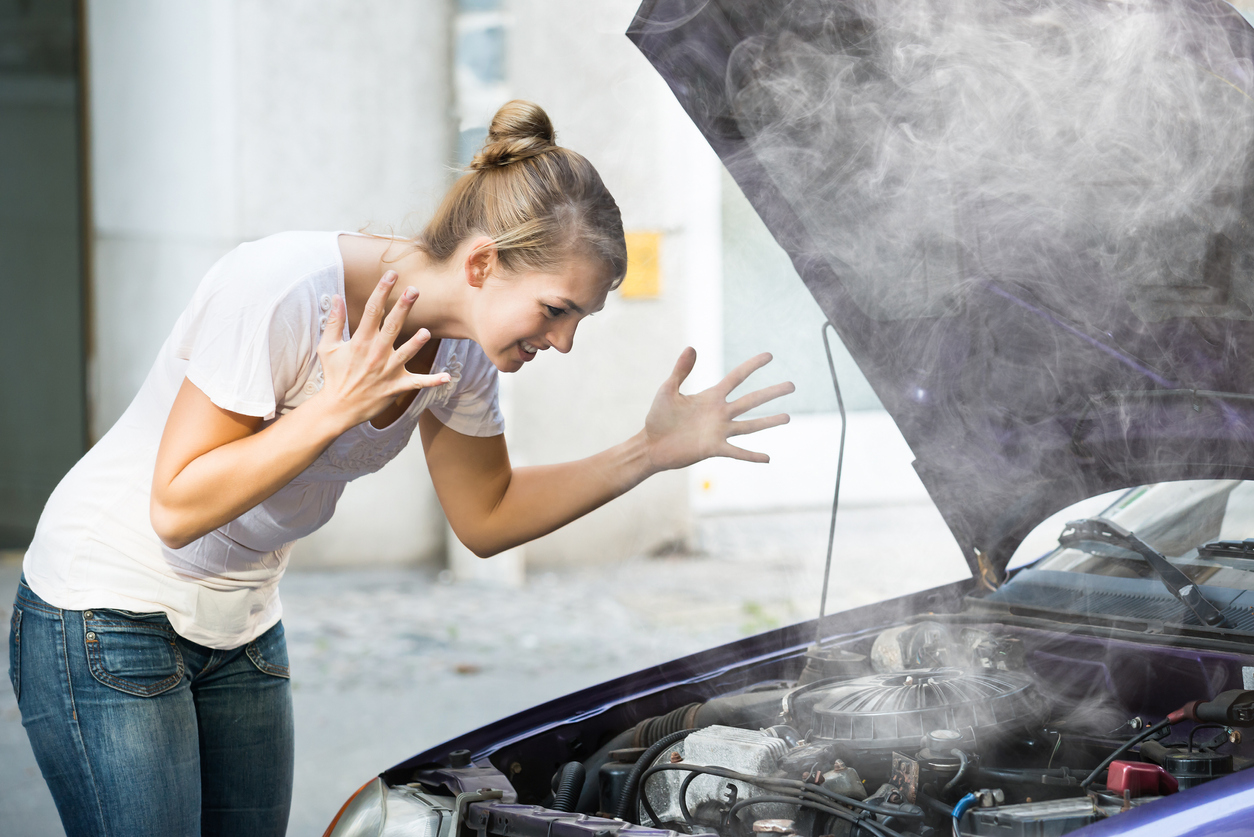

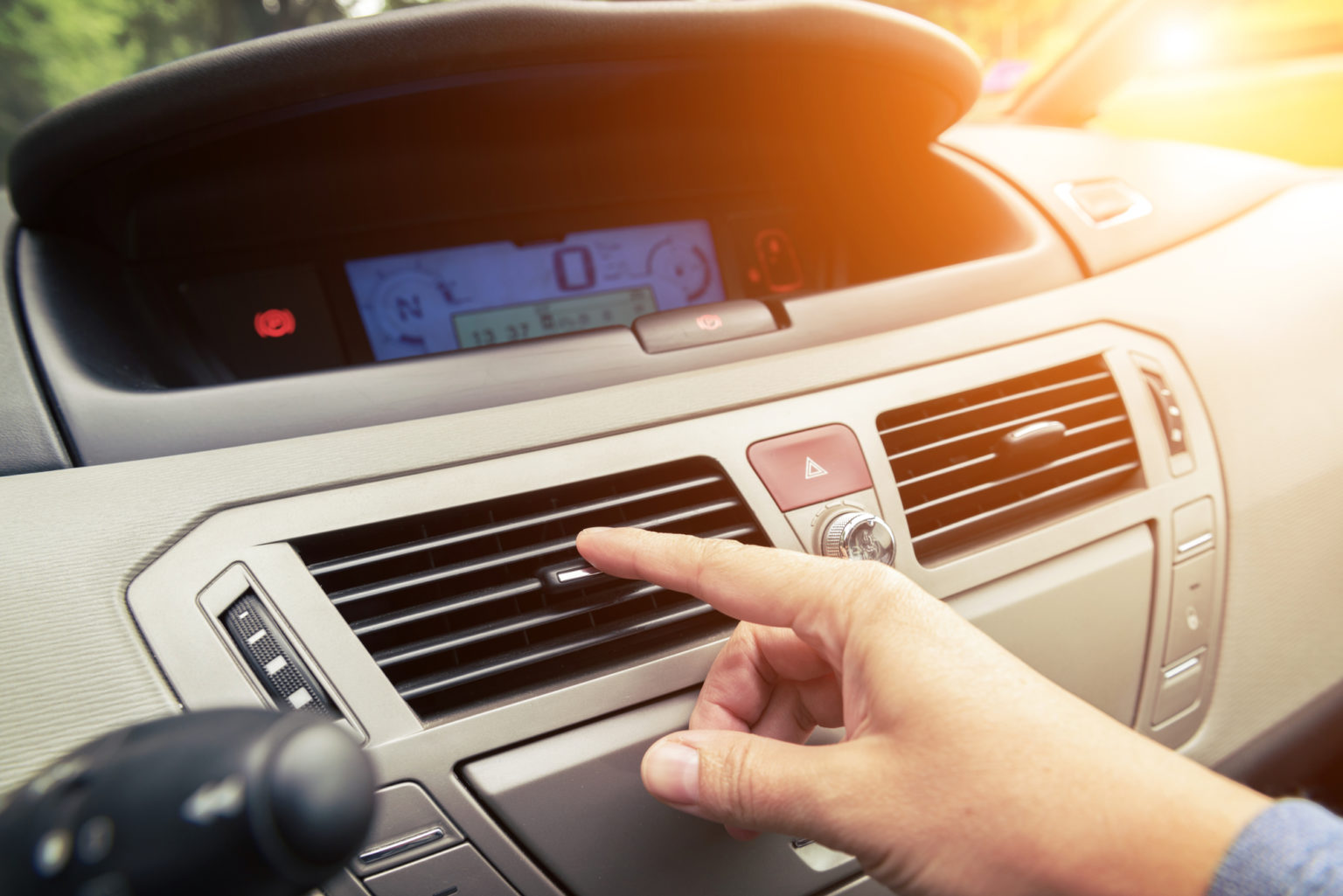


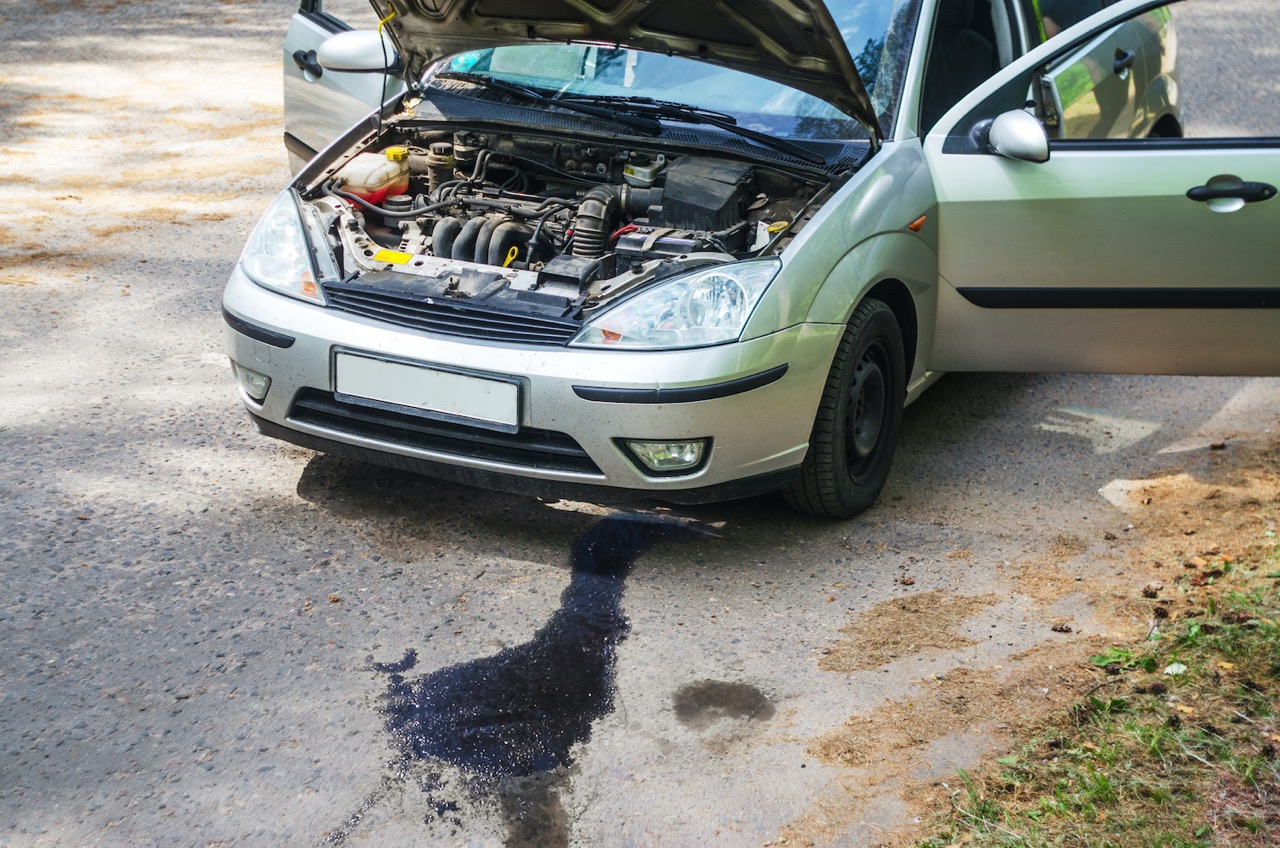

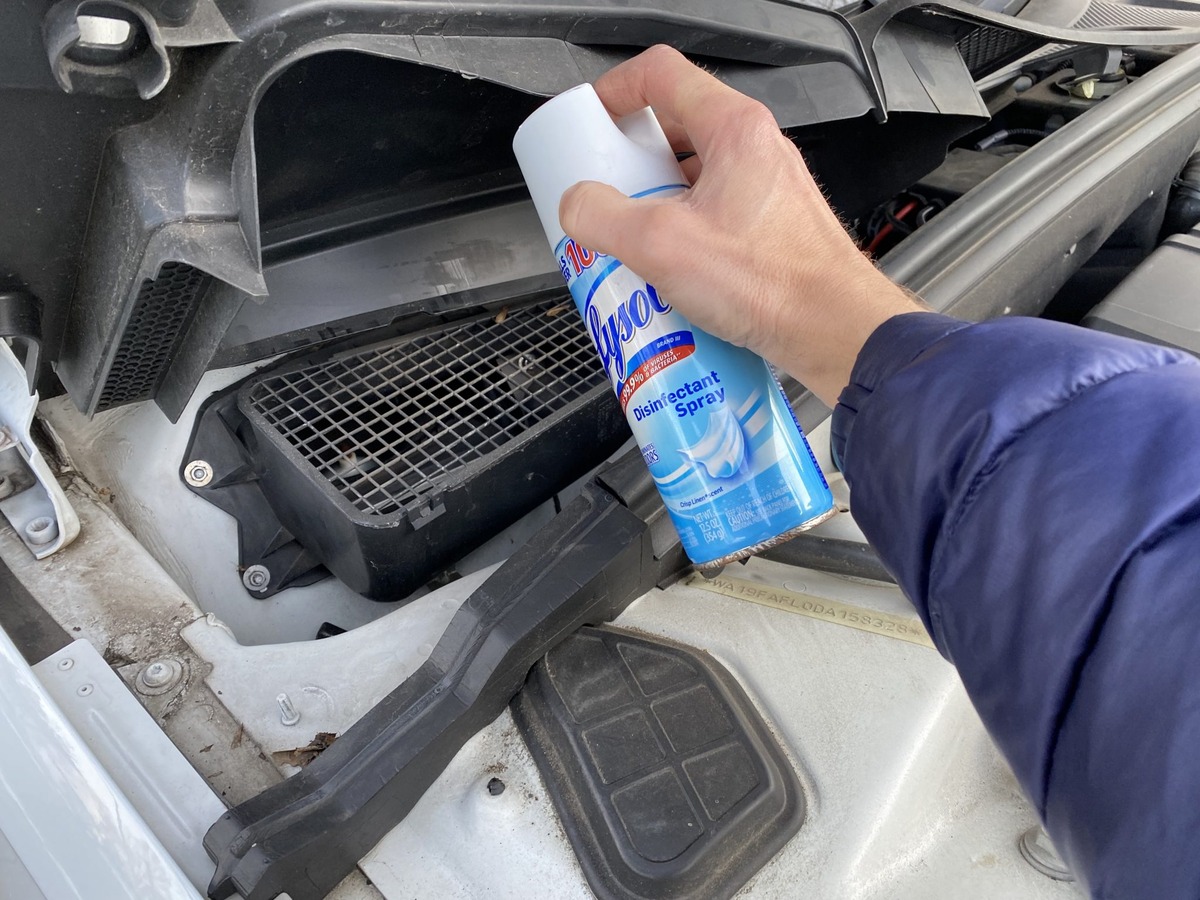
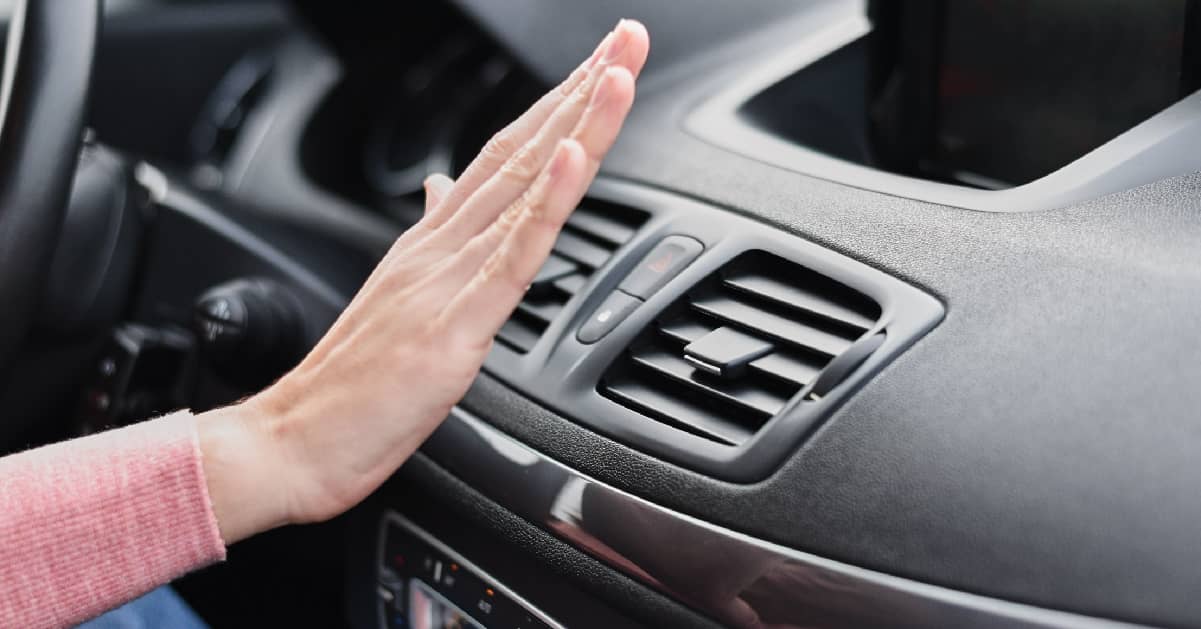

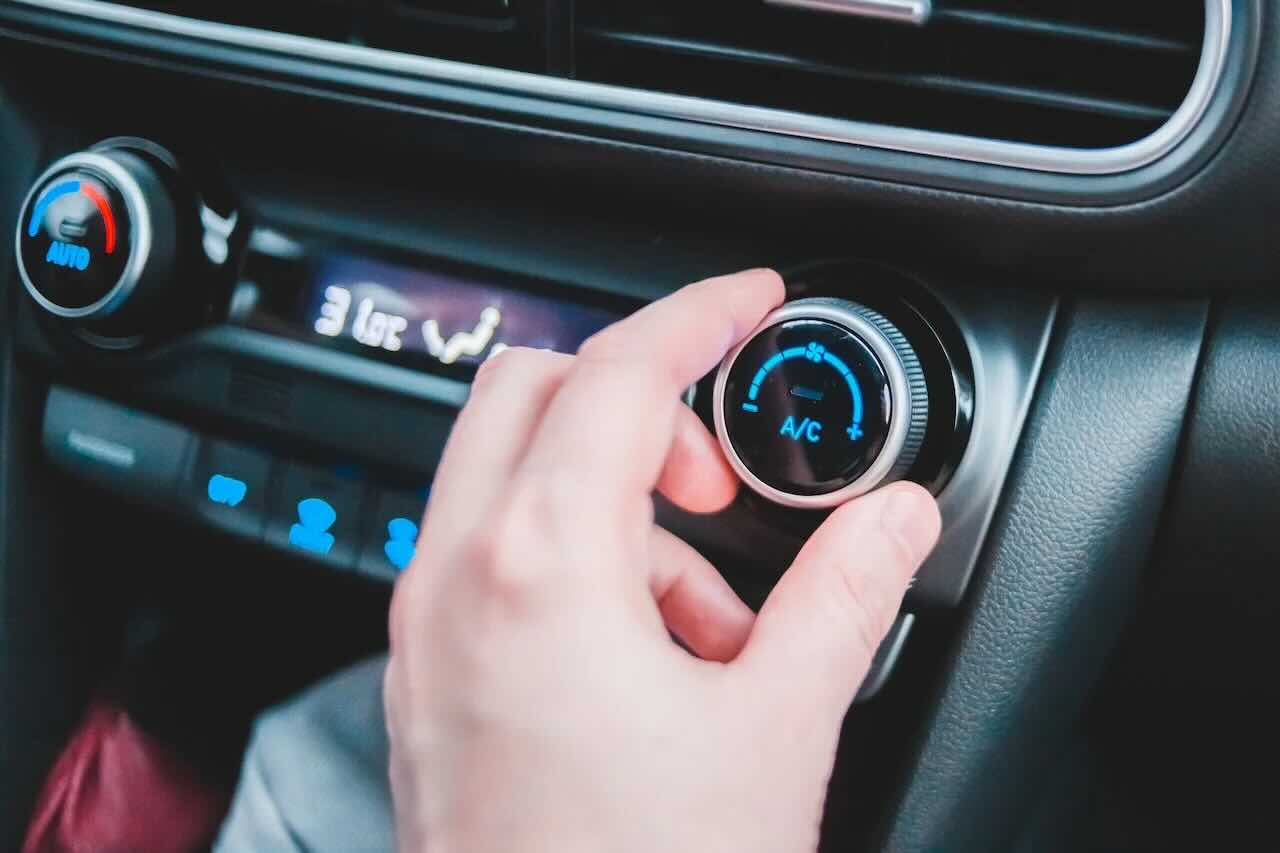

0 thoughts on “Car Smells Like Gas When AC Is On”